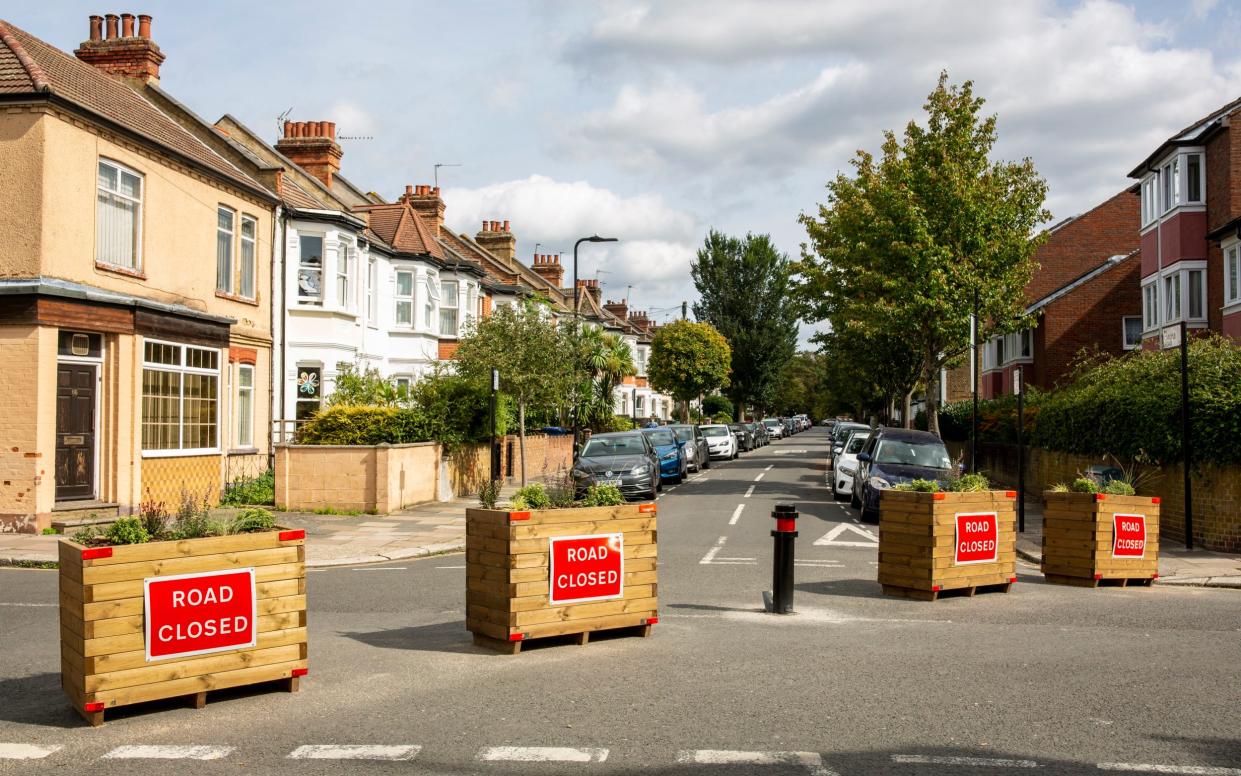Low traffic neighbourhoods are forcing tradesmen to hike prices by as much as a quarter

Tradesmen living near Low Traffic Neighbourhoods have been forced to hike up prices by as much as a quarter, claiming the car reducing schemes dramatically reduced the number of jobs they were able to attend.
Congestion caused by the controversial schemes means self-employed plumbers, electricians, builders and other workers in London are taking much longer to get to appointments and are therefore missing out on valuable business.
As a result many of the small firms - already suffering from the impact of the pandemic - have had to pass on the costs to their customers in order to stay afloat.
In some cases prices have risen by 25 per cent and some tradesmen are worried that if the LTNs are expanded it could force them out of business altogether.
The traffic reducing measures were introduced last year in several London boroughs in a bid to reduce pollution and make roads safer for cyclists and pedestrians.
But critics claim it has simply led to congestion on other routes and has dramatically slowed down journey times for motorists.
'Now I can only do two or three jobs a day'
Brian Sargent, 43, who lives and works in east London, said his plumbing business had been hit hard because it was not taking him so much longer to get to jobs.
He explained: “It used to take me 15 minutes max to get to most of my local jobs, because the area is pretty compact.
“But now, because of the LTNs, I can only go to two or three jobs a day, rather than the five I used to, because everything takes so much longer.
“This means I’ve had to raise my prices from around £45 an hour to £70 just to offset the jobs I can’t get to.”
“I know they’re apparently better for the environment, but after being in lockdown for a year and not being able to do any jobs I can’t help but have to be selfish about my business.
“To most people who live in areas with them [LTNs] they seem to just be taking traffic away from the nice, posher areas and making everything longer for us working people.”
LTNs were introduced in London last Spring, with the Government allocating a £250 million Emergency Active Fund to local authorities to promote Covid-secure ways of travelling, such as walking and cycling.
In some areas entire roads have been blocked to traffic with planters and barriers, while motorists face large fines for entering other areas that are monitored by Automatic Number Plate Recognition (ANPR) cameras.
'Not only have LTNs made getting to jobs slower, they make doing my work harder too'
Tyrone Wain, 52, who works as a carpenter in Hackney and neighbouring Islington, said he was now worried about being hit with fines every time he drove to a job.
Mr Wain said: “Not only have LTNs made getting to jobs slower, they make doing my work harder too.
“I can’t drive up to people’s homes in certain areas which means I have to park my van before the blockades then carry everything in multiple trips to the job.
“And it makes me worry about the safety of my vehicle too because I can’t watch it properly while working.”
He questioned the way LTNs had been introduced without consultation and said it felt as if they had “come out of nowhere”.
Councillor Mete Coban, the Hackney Council Cabinet Member for Energy, Waste, Transport and Public Realm, said that early data suggests LTNs have not had a significant impact on main road traffic - but the council will continue to assess their impact on tradespeople, who are a “vital part of Hackney’s economy”.
He said: “We will continue to assess the impact of LTNs, which are aimed at creating quieter, safer streets, improving air quality, encouraging people to switch car journeys for walking and cycling, and prioritising essential motor traffic - like the emergency services, waste vehicles and tradespeople.”

